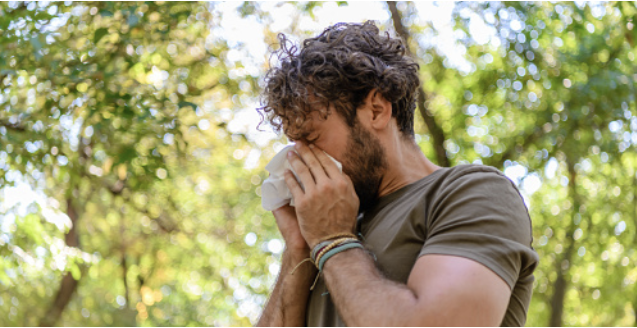Allergies occur when a person’s immune system reacts to a foreign substance such as pollen, bee venom, pet dander, or a food that doesn’t cause a reaction in most people. These substances are known as allergens and can also include dust mites, pets, pollen, insects, ticks, molds, and some medications. When the body mistakes one of these substances as a threat and reacts with an immune response, we develop an allergy. Your immune system produces substances known as antibodies. In many areas of the United States, spring allergies begin in February and last until the early summer. In severe cases, reactions to these allergens can cause low blood pressure, breathing trouble, asthma attacks, and even death if not treated promptly.
There is no direct cure for allergies, but they can be managed with prevention and treatment. Steam from a hot bath or shower can help, too. Or you can try rinsing your nasal passages with a mild saline solution and neti-pot. Drink more water. Maybe one of the easiest and fastest ways to relieve allergy symptoms is by drinking more water. A low-fat diet high in complex carbohydrates, such as beans, whole grains, and vegetables may reduce allergic reactions.
In 2021, approximately 81 million people in the U.S. were diagnosed with seasonal allergic rhinitis. The tendency to develop allergies is often hereditary, which means it can be passed down through genes from parents to their kids. Atopy is the genetic tendency to develop allergic diseases. But just because a parent has allergies doesn’t mean that their kids will get them. Nobody is born with allergies. Instead, the 50 million people in the United States who suffer from allergies developed these only once their immune systems met the culprit. It is uncommon for adults to develop new allergies. These allergens land on and in anything they encounter – including your skin, clothing, eyes, nose and lungs.
Climate change may be leading to worse pollen allergy seasons, according to experts. The good news is that seasonal allergies are just that – seasonal. That means your allergy symptoms should eventually subside as weather patterns shift. Tree pollination begins earliest in the year, followed by grass pollination later in the spring and summer and ragweed in the late summer and fall.
Sources:
https://www.zyrtec.com/allergy-guide/outdoors/understanding-spring-allergies
https://acaai.org/allergies/allergic-conditions/seasonal-allergies/
https://www.mayoclinic.org/diseases-conditions/hay-fever/in-depth/seasonal-allergies/art-20048343










